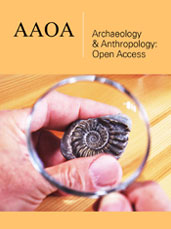- Submissions

Abstract
Archaeology & Anthropology: Open Access
Transference of Ethnobotanical Knowledge and Threat & Conservation Status of Medicinal Plants in Ethiopia: Anthropological and Ethnobotanical Perspectives
-
Open or Close Alemayehu Kefalew1* and Sara Sintayehu2
1Department of Plant Biology and Biodiversity Management, AddisAbaba University, Ethiopia
2Department of Natural Resource Management, Haramaya University, Ethiopia
*Corresponding author: A Kefalew, Researcher of Ethnobotany, Department of Plant Biology and Biodiversity Management, Addis Ababa University, Addis Ababa, Ethiopia
Submission: August 19, 2017; Published: October 10, 2017

ISSN: 2577-1949Volume1 Issue1
Abstract
In Ethiopia, the use of traditional medicine for primary health care is becoming accepted and popular. However, it is under great risks when looked from the point of losing the knowledge transfer and the degradation of the vital medicinal plants. Thus, this review was initiated to briefly look into how is the very common way of transferring indigenous knowledge and to look at the threats & conservation effort of medicinal plants in the country. The review indicates that indigenous knowledge of medicinal plants is transferred from a practitioner father to elder son as he is he is getting older. However, if there is no elder son it would be passed over to any one among the family who is supposed to be loyal to keep the knowledge secret; but if the practitioner does not have families, the knowledge passes to any one among his relatives who is believed to keep the knowledge secret. This review also showed that the main reasons for the degradation of medicinal plants in Ethiopia are environmental degradation, agricultural expansion, deforestation, over harvesting of species and invasive alien species. It is also indicated that Ethiopia is practicing both in-situ and ex-situ conservation. The Ethiopia traditional medicine association should work to fill the gap between how the herbalist can transfer their knowledge even to the wider researcher without compromising the rule to Convention on Biological Diversity (CBD). Participatory medicinal plant conservation shall be the best approach to follow in the country as a better conservation strategy. To access the conservation effort, the Ethiopian Biodiversity Institute (EBI) has to expand cold room gene banks and field gene banks in different provinces of the country.
Keywords: Ethiopia; Ethnobotanical knowledge; Ex-Situ conservation; Gene bank; Threats of medicinal plants
 a Creative Commons Attribution 4.0 International License. Based on a work at www.crimsonpublishers.com.
Best viewed in
a Creative Commons Attribution 4.0 International License. Based on a work at www.crimsonpublishers.com.
Best viewed in 







.jpg)





























 Editorial Board Registrations
Editorial Board Registrations Submit your Article
Submit your Article Refer a Friend
Refer a Friend Advertise With Us
Advertise With Us
.jpg)






.jpg)













.bmp)
.jpg)
.png)
.jpg)














.png)

.png)



.png)






